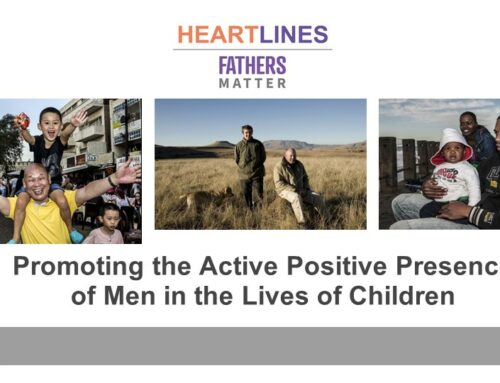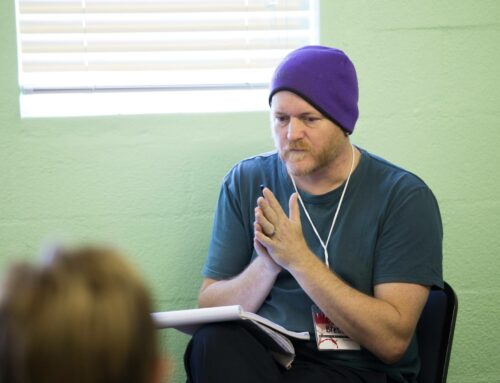How much of your life is spent on things that matter?
i was on a call with my fellow Heartlines staff members this week and we were doing a bit of a check-in based on a question Seth Naicker had asked.
The question related to Youth Day and the Sharpville uprising in 1976 which helped trigger events leading towards the eventual official end of apartheid in South Africa.
i was 2 at the time and so obviously didn’t remember anything. Instead, i spoke about looking back on a life that had involved a lot of passion and challenge to the leadership in the main structure that i was in, which was church.
But for me, the hard part is seeing what we were deeply passionate about and fighting for. Which at the time was largely about not having sex til marriage and not drinking, smoking or doing drugs.
The church for too long has focused disproportionately on a kind of sexual morality at the expense of other things. i am not even now saying that i think any of those things don’t deserve attention or focus. But growing up in apartheid South Africa, there should have been much more pressing matters.
If i had been as passionate and committed to areas of Justice for the marginalised growing up, my life would have turned out much differently.
It is so interesting that i had been drawn to pacifism and was considering jail over army when going to teacher’s training college saved me from having to make that decision. So clearly at that time something was on my mind, but i know it wasn’t a driving force that reflected in the rest of my life.
i can’t go back and change the way i lived, which at 46 is a bit of a large suck. But i can commit to doing better from now on.

Love your neighbour as yourself
It is one of the biggest mysteries as to how one of the biggest, if not the biggest?, organisations in the world – the church – can hold this phrase up as part of the biggest command and focus we have been given… and yet continue to live in such contradictory ways that suggest we don’t really believe it. Not really.
In South Africa the gap between rich and poor is one of the biggest realities holding us back. i can’t remember hearing a preach on greed. As in ever. We have to do better. We have to be better.
If i hold to a ‘Love your neighbour as yourself’ theology and life priority – and i do – then it has to affect how i spend my money. As well as my time and energy and resources.
A quote staring at me from my man cave wall reads: “Justice will not be served until those who are unaffected are as outraged as those who are.” Attributed to Benjamin Franklin.
Because it doesn’t affect me as directly, i have to be extra intentional about it. Because i have the opportunity to switch off and distance myself from the idea, i need to continually make it a priority and be working towards it. The poor don’t get to switch off being poor. Black, Coloured and Indian people don’t get to step away from the way their race impacts them on a daily basis.

But what can i do?
The need can feel overwhelming. And often does. But this diagram helps make it feel a little more manageable.
i think the ‘What can I do?’ can be broken into two categories:
[1] What can I practically do myself? How do i spend my time, money, resources, energy to change the ongoing narrative when it comes to race in my spaces, in my community, in my country and in the world? How do i spend my time, money, resources, energy in the direction of the poor and other marginalised groups who have less than me? i can’t do all the things, but what are the things i can do or start doing?
i have shared this a lot lately, but if you have not seen it yet, here are a few ideas to get you going on this!
[2] Who can I influence? Who can i help bring into the conversation and journey? Whose racism needs to be interrupted and whose activism needs to be stoked? Who am i modelling to and mentoring? How committed am i to a #NotOnOurWatch commitment to interrupting racism whenever and wherever i see it in front of me?

Step more deeply in
We live in an angry, hurting and broken world a lot of the time.
Having your eyes opened to the fact that you need to be working in your own racism and anti-racism and sexism and other forms of prejudice can feel painful and uncomfortable. We need to hold that against how people who have faced oppression and bigotry their whole lives must be feeling. Yet they keep moving on, and so must we. Only more urgently so, cos we are arriving to this thing late.
There will be pushback. There will be uncomfortable moments. You may lose friends and family over this. Do it anyway!
And give this a read, because it is important for us to know that there is no reward or prize for us getting involved in this work. We are simply reaching a place we needed to be years or some of us decades ago. This is the low bar of common human decency and treating people as equals.
This is our duty. This HAS to become priority for us. No Justice until there is Justice for all. No Freedom until there is Freedom for all. We are not where we need to be and we need to get serious about doing what we are able to, to help us all move together to get there.
i never want to look back and see that i lived my life focusing on priorities that didn’t matter.








We need to look at how a president or vice president or politician can accumulate R10 billion in office. Cyril was broke in the early 90s. Then he was paid by the big mining houses to do their bidding. Marikana is a perfect example. He is not a great businessman, but a great orator. To put things in perspective, R10 billion is like getting R1 million rand per day since 1995. Every single day. That’s huge. Maybe we need to look at where all this tax is going? No point trying nything until this huge hole in the ship is plugged and new public servants are elected. We don’t want leaders, we want public servants. We don’t need rulers, we need helpers. Government should never lead, rule or control us.
i love the term and how you express it of public servants – would be a game changer for South Africa to have leaders who cared more about the poor and marginalised than their own luxury…